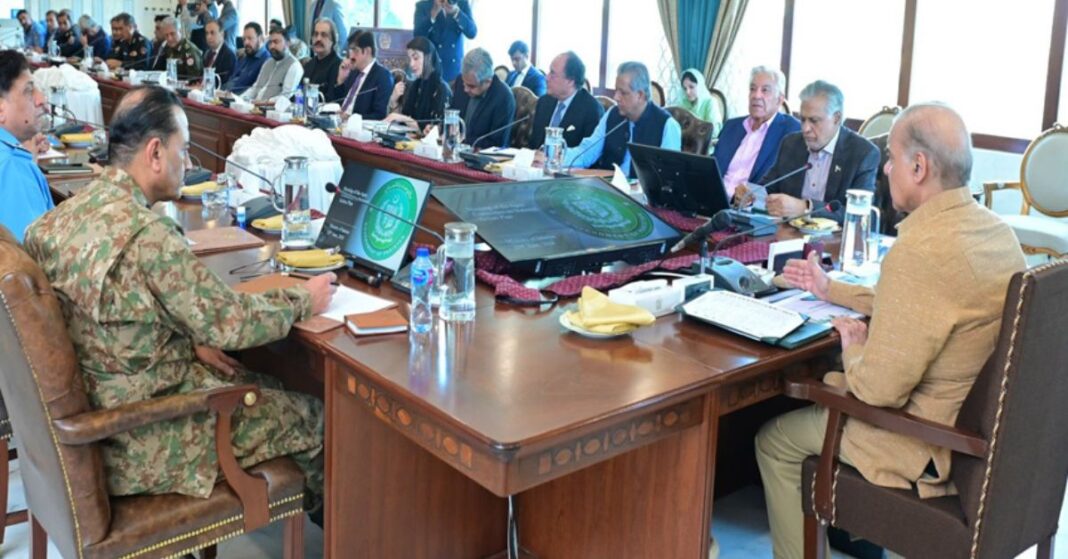- Prime Minister Shehbaz Sharif launches operation “Azm-e-Istehkam” to fight terrorism.
- Apex committee agrees on new security measures and legislative reforms.
- PM Shehbaz calls for national unity and regional cooperation to combat extremism.
Prime Minister Shehbaz Sharif announced the launch of operation “Azm-e-Istehkam” on Saturday, aimed at effectively combating terrorism and extremism across Pakistan. The decision was made during a high-level meeting of the apex committee, which included the chiefs of the armed forces, federal ministers, chief ministers, and chief secretaries. The committee unanimously agreed on the necessity and urgency of this operation.
In a statement released after the meeting, the operation was described as a symbol of the nation’s unwavering resolve to eradicate terrorism and extremism, ensuring stability and security for all citizens. The apex committee emphasized that the war against terrorism is Pakistan’s own war, crucial for the country’s survival and prosperity.
The committee outlined new security protocols for Chinese nationals residing in Pakistan and stressed the implementation of multilateral principles from the National Action Plan. This includes identifying and rectifying any shortcomings in current security measures. Plans for legislative measures to strengthen the prosecution of terrorism-related cases were also announced, with a firm stance on zero tolerance for any threat to the state’s integrity and stability.
Moving forward, regional cooperation at political and diplomatic levels will be intensified to dismantle terrorist networks and eliminate their operational capabilities. This reaffirms Pakistan’s commitment to regional peace and security.
Addressing the committee, PM Shehbaz Sharif emphasized that defeating terrorism requires a unified national effort, not just the armed forces. He called for setting aside political differences, labeling the struggle as a battle for the nation’s survival. Sharif advocated for legislative reinforcement to bolster security institutions and close legal gaps that may facilitate terrorism. He stressed the importance of countering false propaganda and ensuring that truth prevails.
Sharif also highlighted the need for clarity of purpose among political and religious ranks in the war against terrorism, stating that it is essential for protecting future generations. He called for moving forward with consensus and mutual consultation, rising above political differences to achieve this goal. The prime minister noted that non-kinetic measures are also necessary to counter the narrative of terrorists.
In a poignant moment, Sharif condemned those who have poisoned social discourse with divisive rhetoric, labeling speaking against the nation as the gravest of crimes. He proposed stringent laws to foster unity and quell divisive forces within society, calling for concerted efforts to safeguard the nation against external threats and internal discord.
Before adjourning the session, Deputy Speaker Shah advised PM Shehbaz to collaborate with Interior Minister Mohsin Naqvi and coordinate with the Khyber Pakhtunkhwa chief minister to address these issues, underscoring the need for a coordinated government effort.





